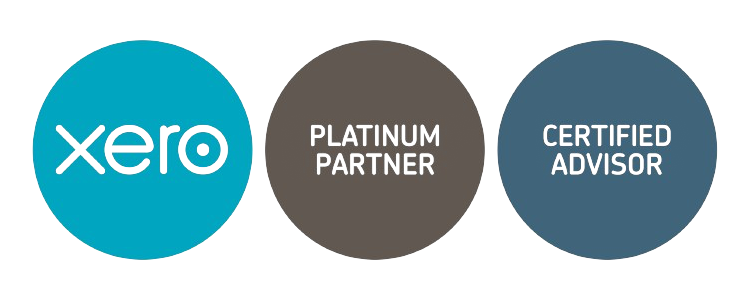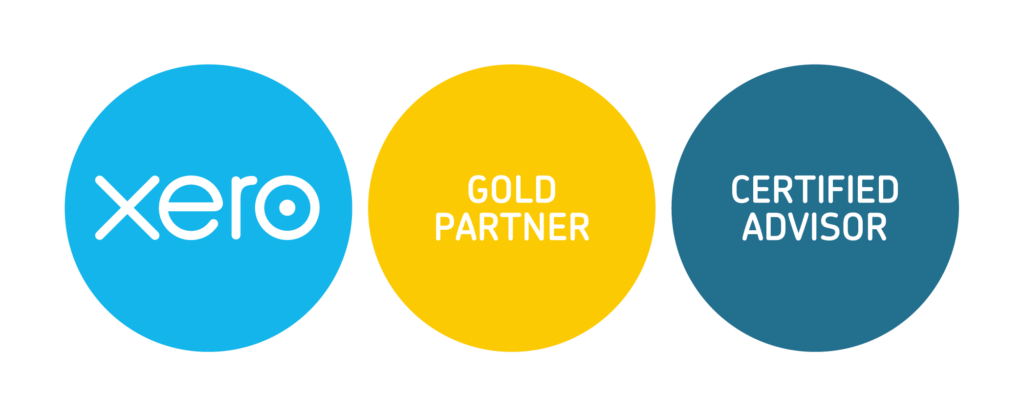CFO GROUP INTEGRATED SERVICES
Mastering the Register of Registrable Controllers in Singapore: A Vital Guide for Businesses
CFO Group • July 5, 2024
Navigating the business world means grappling with complex regulations, one of which is maintaining a Register of Registrable Controllers (RORC). For businesses operating in Singapore, understanding and conserving this register of registrable controllers notice is paramount for complying with the Companies Act.
This blog post explains the RORC and its relationship to the Singapore Companies Act and provides a sample format to help you get started.
What is the Register of Registrable Controllers?
The Register of Registrable Controllers is an essential record that details the individuals or entities with significant control over the company.
It helps ensure legal compliance and builds trust and transparency between the company's controller and its stakeholders.
By maintaining an updated RORC, companies demonstrate their commitment to ethical business practices.
Deciphering a Registrable Controller (RC)
A registrable controller, often abbreviated as a registrable individual controller or RC, is an individual or a legal entity with significant control or influence over a company. This can be through owning more than 25% of the shares, voting rights, or having the right to appoint or remove directors.
An RC can also exercise significant influence or control over the company through other means.
Register of Registrable Controllers and the Singapore Companies Act
According to the Companies Act in Singapore, every company incorporated in Singapore is obliged to each controller and maintain an RORC.
Companies must keep an updated register that provides information about the controllers, including their names, contact details, and the date they became controllers.
Failure to comply can lead to severe penalties, thus underlining the register's importance.
The Importance of the RORC for Businesses
Not only does the RORC help in ensuring a company secretary complies with the law, but it also builds a sense of trust and transparency between the company and its stakeholders. By maintaining an updated RORC, companies demonstrate their commitment to ethical business practices.
Furthermore, verifying and identifying those with significant control is crucial in the company’s due diligence processes.
Setting Up and Maintaining the Register of Registrable Controllers
Setting up a RORC involves several steps:

Identify
The first step is to identify the company's registrable controllers. This involves assessing share ownership, voting rights, and rights to appoint or remove directors.

Record
Once the RCs have been identified, their details must be recorded in the register. This includes their name, residential address or the address of the registered office, nationality or place of
incorporation, the nature of control, and the date they became an RC.

Update
It is essential to update the register regularly, recording any changes in the registrable controllers' details or the nature of their control. This update should be made within two business days after knowing the changes.
Maintaining an RORC isn't a one-time affair. It's a continuous process, and companies must ensure that the register's details are up-to-date and accurate at all times.
Responsibilities of a Registrable Controller
Key among the obligations of a registrable and corporate controller is providing and updating their information for the RORC as and when changes occur.
Failure to provide accurate information or comply with company notices to provide information can result in penalties under the Companies Act.
Updating the Register of Registrable Controllers: Timeline
According to the Companies Act, companies must update their RORC within two business days from the time they are aware of the change in the registrable corporate controller, the particulars of the registrable controllers or the occurrence of a new registrable controller.
Timely updates are essential to maintain the accuracy and relevance of the RORC.
Registration and Renewal of the RORC
The requirement for foreign companies registered in Singapore to establish an RORC came into effect on 31 March 2017. Companies incorporated in Singapore before this date had 60 days to comply with this new requirement.
For those incorporated after this date, the RORC must be established within 30 days from the company's incorporation date.
Unlike some corporate filings, the RORC does not need to be renewed annually. However, it must be maintained and updated continually.
Any changes in the particulars of existing companies in the registrable controllers or the occurrence of new registrable controllers should be updated within two business days of the company becoming aware of the change.
This keeps the register accurate and up-to-date at all times.
Exempted Groups from RORC Regulations
Certain corporate entities are exempt from maintaining an RORC due to their nature of business and the strict regulatory oversight they already have.
- Public companies listed in Singapore
- Companies listed outside Singapore which are subject to regulatory disclosure requirements and transparency obligations in their listed jurisdiction
- Singapore financial institutions
- Companies wholly owned by the entities mentioned above
For these entities, information on their controllers is already publicly available or corporate controller is formed subject to other regulatory control.
Verifying the most current information is crucial, as regulatory requirements may change over time. Always consult a legal or accounting professional to ensure your business fully complies with all relevant requirements.
Who Can View an Entity’s RORC?
The RORC is not available for public viewing. However, company officers, company directors and secretaries can view it because they are responsible for its maintenance.
However, it must be available for inspection if requested by certain public authorities in Singapore: Public and law enforcement agencies, including the Accounting and Corporate Regulatory Authority (ACRA), the Commercial Affairs Department (CAD), and the Monetary Authority of Singapore (MAS).
Register of Registrable Controllers: Sample Format
The format for the RORC might vary based on the company date and nature of the business, but the following points are generally required:
- Name of the registrable controller
- Residential address or address of the registered office
- Nationality or place of incorporation
- Date on which they became a registrable controller
- Nature of control
- Legal form
This is the basic structure of a Register of Registrable Controllers. However, seeking professional guidance to ensure the legal form's accuracy and full compliance with the Singapore Companies Act is highly recommended.
Elevate Your Business with Expert RORC Management from CFO Accounts & Services
At CFO Accounts & Services, we understand that navigating the complexities of the Register of Registrable Controllers (RORC) can be a daunting task for businesses in Singapore. As the leading expert in accounting and corporate services, we specialize in enhancing your financial strategy and ensuring compliance with the latest regulations, helping your business maintain its competitive edge and achieve sustainable growth.
Comprehensive RORC Support Tailored to Your Needs
Our team at CFO Accounts & Services provides a full spectrum of tailored RORC management services. We handle everything from the initial identification of registrable controllers to the continuous updating and maintenance of your RORC. Our services are designed to streamline your compliance processes, allowing you to focus on core business activities without the stress of regulatory issues.
Why Choose CFO Accounts & Services for RORC Management?
- Expertise in Regulatory Compliance: We stay abreast of changes in legislation and ensure that your business is always compliant with the Singapore Companies Act. Our deep understanding of regulatory requirements saves you from potential fines and legal penalties.
- Strategic Financial Planning: Beyond compliance, our services contribute to your strategic financial planning. Understanding the intricacies of your company’s control structure allows for better risk management and decision-making.
- Cutting-Edge Technological Integration: We employ the latest accounting technologies to manage your RORC, ensuring efficiency, accuracy, and accessibility. Our digital solutions simplify the process of updating and maintaining your register, providing peace of mind with secure and up-to-date information.
- Building Trust and Transparency: With our comprehensive RORC management, we help foster a climate of trust and transparency within your business. This not only enhances your reputation with stakeholders but also positions your business as a trustworthy entity in the eyes of public authorities.
Get Started with CFO Accounts & Services
Don't let the complexities of RORC compliance overwhelm your business operations. Connect with CFO Accounts & Services today to secure expert guidance and robust support. Schedule a consultation and let us help you develop a solid financial foundation that not only complies with regulatory demands but also supports your business goals.
Visit us at CFO Accounts & Services to learn more about how we can assist you with RORC management and other financial services that safeguard and enhance your business operations. Empower your business with the expertise it needs to thrive in Singapore’s dynamic economic environment.
FAQs
Does VCC need to file Rorc?
Under the Variable Capital Companies Act of Singapore, Variable Capital Companies (VCCs) must also maintain a Register of Registrable Controllers (RORC). Introduced in January 2020, the VCC is a new corporate structure designed for investment funds. Like other companies, a VCC must take reasonable steps to identify its controllers and enter the required particulars into its RORC.
It's important to note that the legal and regulatory landscape can change. Always verify the most current information or consult a legal or accounting professional to ensure your organization fully complies with all relevant requirements.
What is the difference between RORC & Nominee director?
The Register of Registrable Controllers (RORC) and the Register of Nominee Directors differ in their purposes and information. However, both are part of the regulatory requirements for companies in many jurisdictions, including Singapore.
- Register of Registrable Controllers (RORC): This register is meant to provide transparency about individuals or entities (the "controllers") who have significant control over a company. This can be through ownership of more than 25% of the shares or voting rights or having the right to appoint or remove directors, among other things. The aim is to prevent illicit activities like money laundering and financing of terrorism.
- Register of Nominee Directors: This register contains information about directors appointed to the board of a company to represent the interests of another entity, such as a creditor, shareholder, or another company. These are known as nominee directors. This register aims to prevent conflicts of interest and ensure that the company and its shareholders know any third-party interests that might influence a director's decisions.
In essence, while the RORC is concerned with those who have significant control over a company, the Register of Nominee Directors is concerned with the identity and interests of those on the company's board to represent others. The purpose of both registers is to enhance corporate transparency and governance.
Does Singapore have a UBO register?
Yes, in Singapore, the concept of an Ultimate Beneficial Owner (UBO) is encapsulated within the requirement for companies to maintain a Register of Registrable Controllers (RORC). The RORC essentially serves as the UBO register in Singapore's context. It's designed to identify and record the details of individuals or entities that have significant control over or ownership interests in the company, similar to the UBO regulations found in other jurisdictions. The aim is to increase transparency and combat financial crimes like money laundering and terrorist financing.










